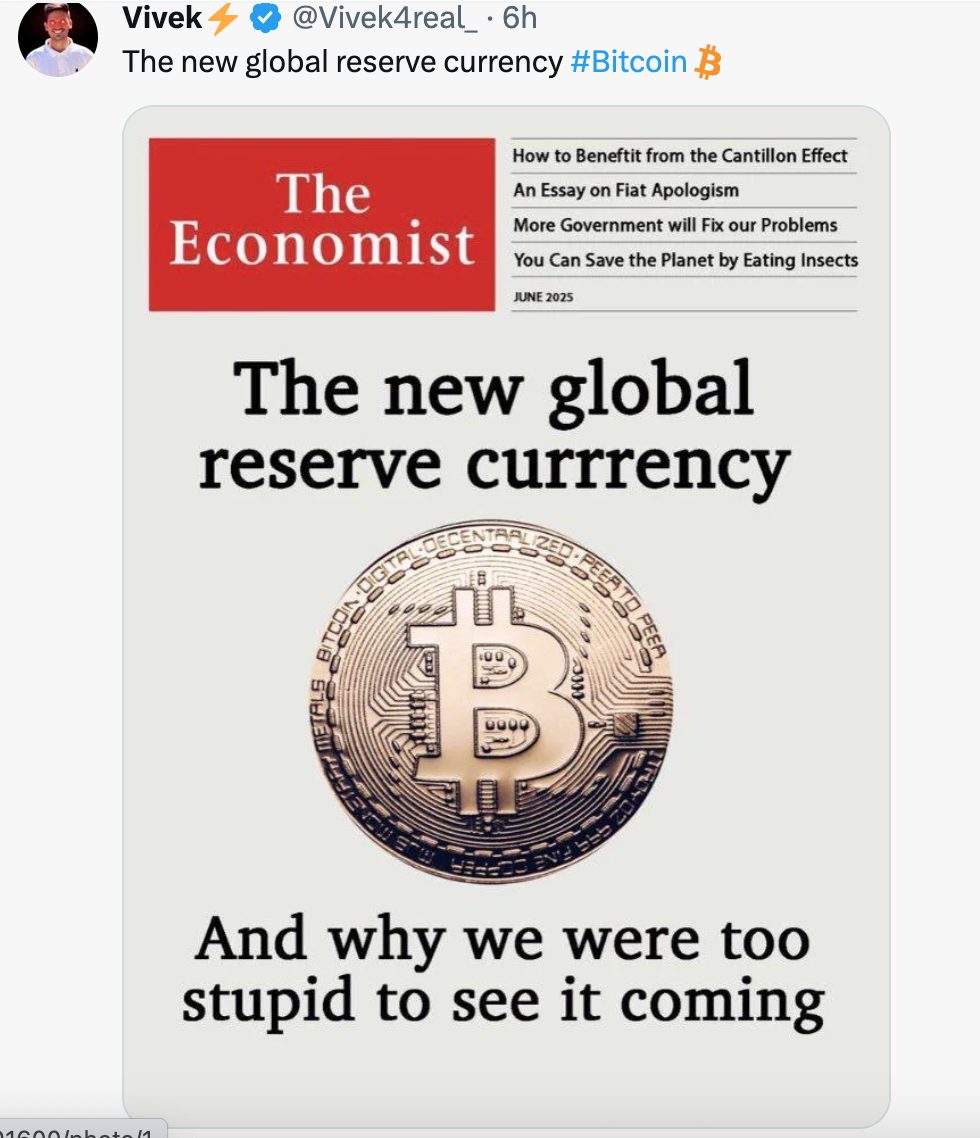In a world where economic landscapes are constantly shifting, the concept of a global reserve currency has been a subject of much debate and speculation. The U.S. Dollar has long held this position, but with the rise of digital currencies, particularly Bitcoin, the conversation is changing. In this article, we explore the perspective of The Economist magazine on why Bitcoin could become the new global reserve currency.
1. Decentralization and Trust
Unlike traditional fiat currencies controlled by central banks, Bitcoin operates on a decentralized network. This means that no single entity has control over the entire network. For many, this decentralization represents a form of trust, as it’s not subject to the whims of any particular government or organization. In a world where trust in institutions is waning, Bitcoin’s decentralized nature could be its greatest asset.
2. Finite Supply and Inflation Protection
Bitcoin’s supply is capped at 21 million coins. This scarcity is built into the code, and it’s something that cannot be changed. In contrast, fiat currencies can be printed at will by central banks, leading to inflation and the devaluation of money. Bitcoin’s finite supply offers a hedge against inflation, making it an attractive store of value for many investors and potentially a stable global reserve currency.
3. Accessibility and Inclusion
Bitcoin is accessible to anyone with an internet connection. Unlike traditional banking systems, which can exclude large segments of the population, Bitcoin offers a more inclusive financial system. This accessibility could make it a more equitable option for a global reserve currency, ensuring that it’s not just the privileged few who benefit.
4. Technological Innovation and Security
Bitcoin’s underlying technology, the blockchain, offers a secure and transparent way to record transactions. This technology is continually evolving, and the security measures are considered to be highly robust. In a world where cyber threats are a real concern, Bitcoin’s security features make it a viable candidate for a global reserve currency.
5. Adaptation by Governments and Institutions
While still in its early stages, we are seeing a growing acceptance of Bitcoin by governments and financial institutions. Countries like El Salvador have adopted Bitcoin as legal tender, and major banks are exploring ways to integrate Bitcoin into their services. This adaptation signals a shift in perception and adds credibility to Bitcoin’s role as a potential global reserve currency.
6. Economic Resilience
Bitcoin has shown remarkable resilience in the face of economic turmoil. During times of financial uncertainty, many investors have turned to Bitcoin as a safe haven. Its ability to weather economic storms adds to its appeal as a stable and reliable reserve currency.
Conclusion: A Paradigm Shift
The idea of Bitcoin as the new global reserve currency is more than just a theoretical concept; it’s a possibility that is gaining traction. The Economist’s perspective on this matter highlights the unique attributes that make Bitcoin a strong contender for this role.
From its decentralized nature to its finite supply, technological innovation, accessibility, and economic resilience, Bitcoin presents a compelling case. As the world continues to evolve, the need for a more inclusive, stable, and trustworthy global reserve currency becomes apparent. Bitcoin, with its groundbreaking features, may very well be the answer.
The transition to a new global reserve currency is a complex and multifaceted process, but the conversation is undoubtedly shifting. As The Economist magazine insightfully points out, Bitcoin’s time may have come, and the world may be on the brink of a financial revolution. Only time will tell, but the signs are promising, and the future of Bitcoin looks bright.





Comments are off this post!